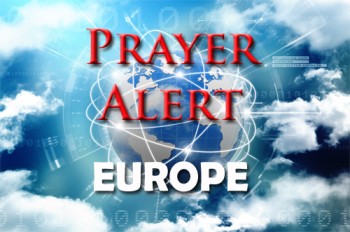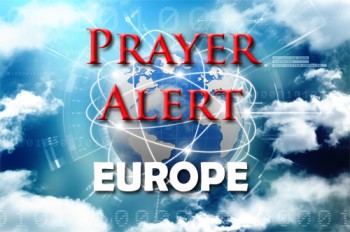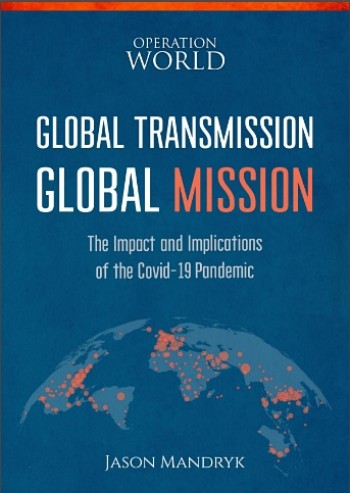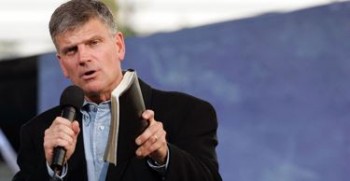Displaying items by tag: operation world
Lithuania: change needed
Freedom has brought good progress in Lithuania. Doors for the gospel remain open. However, freedom has also brought dangers like greed for material goods, selfish pleasure-seeking, and a belief that traditional morals have no value. Substance abuse, suicide, and trafficking of women for prostitution all damage the social foundations. Spiritual transformation must accompany economic growth. Lithuania was the last European nation to be Christianised.
Ukraine: prayer needs
The devastation wrought by Russia’s invasion is heartbreaking, and the atrocities committed are galling. Millions of Ukrainians have been displaced. Tens of thousands have been killed. When the conflict ends, rebuilding will take years, or even decades. Even more complicated will be the healing of trauma experienced and, hopefully, an eventual reconciliation with its neighbour. Pray for the intervention of the God who makes wars cease to the ends of the earth and who breaks the bow and shatters the spear (Psalm 46:9). Pray Psalm 10:17-18 over Ukraine – that the Lord will hear the desire of the afflicted, encourage them, and listen to their cries. Pray for wisdom from above, and divine fortitude for Ukraine’s leaders and its people. Ukraine’s rich Christian heritage began in the Slavic world in Kyiv 1,000 years ago. Churches suffered greatly in the Soviet era. Next there was hostility from the Orthodox Church for other expressions of Christianity. Evangelicals have emerged from many years of persecution with larger numbers and stronger faith.
Laos: an unevangelised nation
Praise God for rapid church growth, even under government restrictions and persecution. Indigenous Laotians lead almost all churches and evangelism efforts. The government recognises two Protestant groups. The largest is the Lao Evangelical Church, where most Christian growth occurs. Growth also happens through ‘underground’ house groups. Over 90% of all trained leaders left Laos in 1975, and most congregations lack a trained pastor. Pray urgently for leaders both in the recognised churches and in the house church networks. Pray that new believers will grow strong in faith and not fall away. The Church suffers through persecution, but recognises that it drives them to prayer and total dependence on God. Much of Laos remains unevangelised. The church's growth is dwarfed by remaining tasks. The Gospel has not easily crossed ethnic barriers. Buddhism and tribal religions blend together. There are 5,000 temples but only 250 church buildings.
Indonesia: Java
Java is not the largest island in Indonesia, but it has the largest population. Praise God that the Church on Java continues to grow. Nearly 50% of Chinese-descent Indonesians and 5% of Javanese are Christian. The many religions of Java historically tolerated each other. But this has changed. Persecution now comes in the form of laws that prevent Christians from building, which sometimes results in the destruction of churches and Christian property. Christians of many traditions now draw together for prayer, worship, and mutual support: and the love among them attracts many Muslims to Christ, despite the persecution. Christian love for the needy and most vulnerable people in society has a powerful effect. Pray for the unreached people groups, including the 34 million Sunda who profess Islam but have underlying animism and traditional beliefs. They are one of the largest unevangelised groups in the world.
Pray for the UK
Immigration is a reality of national life. London has 10,000+ people of over fifty various nationalities. Many Brits struggle to welcome immigrants, who often struggle to adjust to life in the UK. Pray for society to face the challenges of many cultures living together in peace. Immigrants from Christian nations like Nigeria and Brazil bring new church life and church growth. Pray for local congregations to plant new churches, reach new peoples, and glorify Jesus as they partner with believers from many lands. Sadly, England's inner cities are becoming physical and spiritual wastelands of drugs and crime. Dying churches and empty churches have been converted to mosques, temples, or gurdwaras as white evangelicals move to the suburbs. Inner-city whites in poverty and joblessness have few prospects. Pray for God to raise an army of workers to meet the many needs of impoverished and often troubled areas.
Global: women and girls
8 March was International Women’s Day. Genesis 1:27 says God created both men and women in His image, yet women disproportionately suffer injustice. Operation World statistics report, ‘Women account for two thirds of the world’s poorest citizens. Nearly two thirds of illiterate people are women, and this proportion has stayed the same for two decades. Globally, women are paid less than men. A cultural preference for male babies has led to 30 million or more deaths of unborn or baby girls, mostly in India and China. This fuels the growth of trafficking of women as brides or sex slaves.’ In 1945 the UN Charter was the first international agreement to affirm the principle of equality between women and men. The UN celebrated its first official International Women's Day during International Women’s Year in 1975. Nearly fifty years later, women still don’t fully participate in political, cultural and economic arenas in many nations and cultures. Globally, this still needs to be addressed.
Burkina Faso: goldmine explosion
About 60 people were killed and dozens wounded on 21 February in an explosion at an informal gold mining site in Burkina Faso. TV images showed a site of felled trees, destroyed tin houses and bodies covered in mats. The country is home to major gold mines run by international companies, but also to hundreds of smaller, informal sites that operate without oversight or regulation. Children frequently work in these so-called artisanal mines; accidents are common in one of the world's least developed countries. Islamist groups linked to al-Qaeda and IS seek control of mining sites to fund their violence and turmoil. Burkina Faso already struggles with political stability, rebel groups, and ethnic tensions. It can barely cope with additional religious terrorist attacks on both Christians and Muslims. See
Free eBook: Global Transmission, Global Mission - Operation World
CoVid-19 is proving a disruptive, distressing, and divisive force throughout the world. How do mission-minded Christians respond? What happens to the Great Commission when the world is on lockdown? In this short e-book, Jason Mandryk, the author of Operation World, takes readers through a sweeping overview of the implications of the coronavirus for the global Church, and specifically, its impact on global mission.
Jason Mandryk is a member of IPC’s Council and Exec Team.
In compiling this analysis, the Operation World team interacted with ministry and mission leaders in every region of the world, getting input on how to pray for different nations afflicted by CoVid-19 as well as strategic considerations from a wide array of missiological contexts.
Download the eBook
Download PDF (930kb) http://covid-19.operationworld.org/wp-content/uploads/2020/05/Global-Transmission-Global-Mission.pdf Browsers, most readers and devices.
Download Epub (172kb) http://covid-19.operationworld.org/wp-content/uploads/2020/05/GTGM-epub-1.zip
Apple iBooks, Nook, Kobo
Download Mobi (380kb) http://covid-19.operationworld.org/wp-content/uploads/2020/05/GTGM-mobi-1.zip
Amazon Kindle
More info: http://covid-19.operationworld.org/global-transmission-global-mission/
Franklin Graham and Mass Evangelism in a post-Christian UK
In this feature article, Jason Mandryk from Operation World, also a member of the IPC’s Leadership Team unpacks a number of growing issues affecting the United Kingdom that have been highlighted by Franklin Graham’s planned evangelistic visit.
A number of secular UK venues have refused to host Graham’s events.
While the flooding and inexorable spread of CoVid into the U.K. hold the attention of most of us here, the reaction to the planned Franklin Graham tour should not go unnoticed. All of the original venues booked to host Graham’s preaching tour have cancelled, after numerous complaints of the American preacher’s alleged homophobia, Islamophobia, and right wing politics.
A Creeping Prejudice
We are seeing the accelerating trend of Christians being the ones against whom such discrimination is happening. Some have argued convincingly that the cancellations of venues on Franklin Graham’s crusade are examples of such discrimination, and of violations of religious freedom/free speech. Can there truly be free speech when a self-labeled ‘inclusive’ worldview bans people who have convictions different from their own? When we (in this case, Christianity in a nation with centuries of having a state-sponsored Church) are no longer the bully but the bullied, there is a powerful cognitive dissonance. This is happening, not just in the U.K., but across much of the English-speaking world.
Christians in the U.K. should be alarmed at the rapidity of this reversal, and indeed the willingness – eagerness even - of secular society to look the other way, or to pile on, when it’s Christians suffering discrimination. History has taught us, that when these things turn, they often turn fast.
Astute observers will also have noted that there has been a rapid tonal shift from the LGBTQ+ activists. Only a few years ago, such activist groups were pointing out cruel violence and persecution against a small minority, and asking to be allowed to simply exist, to be left alone, to be accepted for who they were. Today, entities like Stonewall and PinkNews are on the offensive. They demonstrate no mercy to those who do not agree to their manifestos. Savvy manipulation of our media and of outrage/victim culture, the weaponization of vocabulary and of Karl Popper’s “Intolerance Paradox” are just some of the tools of the trade.
How, then, do we respond? Well, tens of millions of Christians who have lived in countries with fundamentalist Muslim, Hindu or atheistic governments are deeply familiar with the experience of persecution and of suffering at the hands of an intolerant majority. Some have endured for generations, or even centuries, in these contexts. It may be that in the years to come we will have much to learn from these brave sisters and brothers in Christ. It may be that our recourse to lobby groups, legal actions, and culture wars will be exposed as fruitless. It is likely that our most important lesson will be to learn how to turn the other cheek, and how to love our enemies and pray for those who persecute us (Matt 5:44). Jesus did promise his disciples, “you will be hated by all nations for my name’s sake” (Matt 24:9).
However, the disruption to Franklin Graham’s intended crusade cannot be laid entirely at the feet of those who oppose his visit.
Franklin Graham is not his father
There are two important aspects to Franklin Graham’s approach that are worth noting. Firstly, how the two men made their choices about where and when to do preaching tours differs. Church of England ministers Ian Paul and Paul Eddy write about how Billy Graham “would only go preach in cities after considerable prayer, and after invitations from a wide spectrum of churches in those cities.” An admirable, spiritual, consultative process! The article goes on to explain that the Billy Graham Evangelistic Association (BGEA) no longer operate that way. It appears that Franklin Graham’s decision to come to the U.K. was a private decision between him and God, rather than a relational process involving the U.K. church. The lack of an outcry about the cancellations by the U.K. church is hardly a surprise, then.
Public politics is another issue where the two Grahams significantly differ. One of the hallmarks of Billy Graham’s preaching is that he focused on the gospel. Billy learned to avoid most politics and kept the main thing, the main thing (after well-publicized and painful lessons through his relationship with Richard Nixon). It is a part of why he had the respect of and access to so many communities and leaders around the world. Who else could have had the chance to share his faith personally with everyone from Queen Elizabeth to Johnny Cash to Martin Luther King Jr. to Kim Il Sung to the King of Jordan?
Politics and religion
Regardless of whether you agree with his convictions or not (and he makes no bones about hiding them), it is undeniable that Franklin Graham has very deliberately chosen to mix his politics with his faith. This politicization of religion is controversial enough in America; it sits less well in a Europe that suffered through some incredibly destructive religious wars before the USA even existed. In addition to his right wing politics, Franklin Graham has also been outspoken on his views about LGBTQ+ and on Islam – two already charged issues.
Franklin Graham is certainly entitled to air his views, and the truth is that many faithful Christians in Europe will actually agree with most of them. Yet there needs to be a recognition that the European context, and specifically the U.K. context, requires its own approach for evangelists, especially for high profile ones. One size never fits all when it comes to spreading the good news of Jesus cross-culturally. This is lesson number one for all aspiring missionaries! You wouldn’t try to evangelize a Muslim while eating a pork sausage and drinking a beer, after all. Europe is profoundly different from America, and our evangelism must reflect that. Remember, this is a Europe that has endured centuries of deep antipathy between religious powers, the spiritual baggage of state churches, and the trauma of state-sponsored atheism.
Franklin promised to focus on the gospel in his evangelistic endeavours in the U.K., and I have confidence that he would keep his word if he gave it. He is a gifted evangelist when he preaches the good news. However, the unfortunate truth is that Graham’s evangelistic platform – in Europe, at least – will never be free from the impact of his very public politics. It appears that influential groups in the U.K. are intent on letting Franklin Graham know that they consider him a homophobic, Islamophobic, right wing, Trump-idolizing crackpot and if that’s the Jesus he offers, then thanks-but-no-thanks.
Europe - white unto harvest?
Yet, the U.K.’s reticence to welcome Franklin Graham’s own crusade should not be associated with a rejection of the gospel of Jesus Christ. True, the fires of religious fervour burn most weakly in Europe among all continents. However, for a number of years, missionaries, ministers, and youth workers in “the prodigal continent” have been saying that there has been more openness to the person of Jesus and the work of the Holy Spirit – especially among the younger generation – than there has been in a long time. This is not even including the many on-fire migrant churches from Africa, Latin America, and Asia, nor the spiritually hungry and desperate migrant populations from places like Afghanistan and Iran (oddly enough, all the above are the groups most likely to resonate with Franklin Graham’s particular blend of religion and politics!) In many places in Europe, the spiritual harvest is ripe. Many who live on this continent will question, though, whether an American mass evangelist with conspicuously right wing politics is going to be the most effective worker in that harvest field.
Franklin Graham has stated that he intends to come to the U.K. anyway. I am glad that my brother in Christ is not cowed into cancelling his campaign simply due to the cancellation of public venues. We can all hope that his visit brings much spiritual fruit, even if the venues are churches instead.
How can we pray?
Pray that U.K. Christians would become aware of the accelerating secularization happening in their midst – not to engage in fruitless culture wars, but to redouble their efforts to fearlessly share the good news of Jesus, no matter the consequences.
Pray that the schemes of the enemy to attack the body of Christ and to degrade British society would be exposed. The devil prefers to fight dirty. May the people of Jesus wage war in the spirit of Jesus, who sent His disciples out “as lambs among wolves”.
Pray for great wisdom, discernment, and humility for public Christian figures in the U.K. This includes people like Anglican Archbishop Justin Welby, Evangelical Alliance CEO Gavin Calver, British evangelist J. John, and even visitors like Franklin Graham.
Pray, as always, for a spiritual awakening in this nation with a history of spiritual awakenings. The U.K. needs revival on the scale of the Wesleyan or Welsh revivals. May the Holy Spirit pour Himself out on His people once again!
Join the discussion at www.ipcprayer.org
Christian witness after Japan's disaster
The 2011 earthquake prompted new mission awareness in Japan’s churches. Churches reconsidered how to evangelise and develop the church. In northern Japan, people who previously showed no interest in the gospel became receptive and drawn to Christianity after seeing Christ in volunteers who, without demanding anything in return, kept coming to provide aid and support. By 2017 Christians had begun to be called Kirisuto-san or ‘Mr/Ms Christ’, with respect and appreciation. Over time, people asked about the Bible, and doors opened for sharing testimonies. Operation World reports that Japanese missionaries are increasing, in Japanese and English. The Overseas Missions Association has a membership of over twenty agencies. YWAM Tokyo started ten years ago, with a handful of amazing people. Now they have forty staff, and outreaches all over the city. They need your prayers! See http://www.operationworld.org/country/japa/owtext.html









